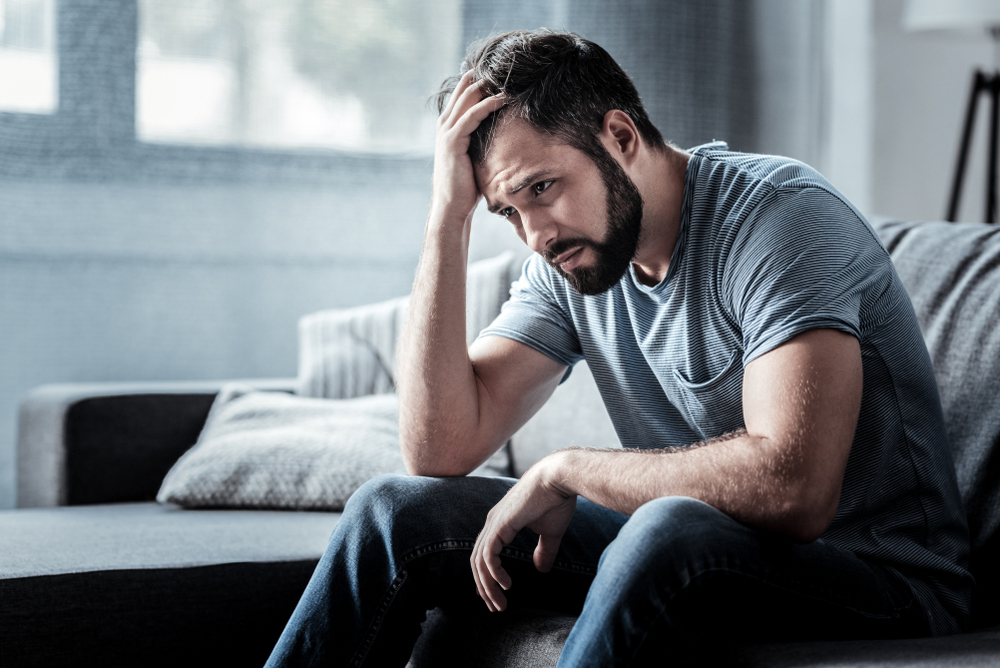Last Updated:
August 7th, 2025

We’re living through what experts now recognise as an epidemic of loneliness, a widespread crisis that’s quietly affecting millions. On its own, that’s heartbreaking, but when loneliness is part of someone’s experience with addiction, it can make recovery even more difficult.
We explore what’s fuelling this growing sense of disconnection, the impact it can have on those trying to recover and how addiction rehab may offer more than treatment.
What is the epidemic of loneliness?
When we talk about an “epidemic of loneliness,” we’re not just using dramatic language. This is a real and growing public health crisis. According to the U.S. Surgeon General’s 2023 report, around half of adults say they experience loneliness. That doesn’t mean feeling alone now and then; that’s common, but this stat refers to a chronic sense of disconnection that wears down both the mind and body.
Loneliness and social isolation increase the risk of premature death by 26% and 29%, respectively, with health risks on par with smoking up to 15 cigarettes a day. These feelings are also linked to a higher risk of
- Depression
- Anxiety
- Dementia
- Heart disease
- Stroke
It doesn’t stop at health, either. Social isolation among older adults costs Medicare around $6.7 billion every year due to increased hospital and care home usage.
What’s fuelling this disconnect?
The loneliness epidemic didn’t arrive all at once; it’s been building for years. Gradual shifts in how we live, work and socialise have chipped away at the everyday connections that once brought people together. While it may feel like a personal problem on the surface, the data shows this is something many are quietly experiencing.
Recent trends suggest that social connection is shrinking in several key ways:
- Young adults aged 15 to 24 are spending 70% less time with friends in person, dropping from 150 minutes a day in 2003 to just 40 minutes in 2020.
- People are spending around 24 more hours alone each month compared to 2003.
- The number of Americans with three or fewer close friends has nearly doubled, from 27% in 1990 to 49% in 202.
- Single-person households have more than doubled, from 13% in 1960 to 29% in 2022.
- Only 16% of people reported feeling very attached to their local community in 2018.
- People who use social media for over two hours a day are twice as likely to feel isolated compared to those who use it for less than 30 minutes.
How loneliness and addiction are linked
Loneliness and addiction often feed into each other. When someone feels emotionally disconnected or unseen, substances can become a way to manage that discomfort.
A systematic review of 41 studies explored this link and found that loneliness is deeply embedded in the lives of people with substance use problems. It identified strong associations between loneliness and:
- Poor mental and physical health
- Increased frequency and intensity of substance use
- Damaged relationships and social stigma
- A belief that others treat them unfairly or judge them
While some psychological models suggest that loneliness stems from internal thought patterns, like believing one is unworthy of connection, these ideas haven’t yet been applied in addiction treatment settings.
Recovery is built on connection. That’s why therapy, peer support and aftercare play such a crucial role in treatment. But if loneliness is left unaddressed, recovery can feel incomplete, as if the substance is gone but the isolation remains.
According to the review, loneliness is also:
- A significant risk factor for relapse
- Likely to increase in early recovery, especially as old social ties are lost and new ones take time to form
- Rarely targeted directly in treatment programmes
The review suggests that more can be done, including developing tailored interventions, improving how loneliness is measured and conducting long-term studies to better understand how it shapes the recovery journey.
How addiction rehab can ease loneliness
When someone reaches out for help, it may be the first time in a long while they’ve spoken honestly about how they’re feeling. That’s why addiction rehab serves as a bridge for rebuilding a sense of connection, one step at a time. Every part of the process plays a role in helping someone feel supported, seen and no longer isolated.
The purpose of the assessment is to shape a treatment plan that works for your specific needs. But it can also serve as a quiet reminder that your story matters and that someone is genuinely interested in hearing it.
In rehab, you’re not going through this alone. Round-the-clock staff are there to help manage symptoms, provide reassurance and respond quickly when needed. Just knowing someone is close by can provide a sense of safety that helps ease the intensity of those first few days.
- Cognitive behavioural therapy (CBT) helps identify negative beliefs like “I’m better off alone” or “Nobody wants to hear from me” and replaces them with healthier ways of thinking.
- Dialectical behaviour therapy (DBT) focuses on emotional regulation and relationship skills, often giving people the tools to re-engage with loved ones in a way that feels safe.
- Group therapy offers connection in real time. It reminds you that others are going through similar battles and creates space for empathy, shared stories and mutual support.
- One-to-one counselling gives people the chance to explore their past and present in a deeper, more personal setting, often revealing the root of long-standing disconnection.
- Holistic therapies like yoga, sound therapy and art can open up new ways of expressing emotion and building self-awareness, especially when words don’t come easily.
Most rehab centres offer ongoing support in the form of:
- Outpatient sessions
- Weekly check-ins
- Peer support groups
- Relapse prevention planning
These services are designed to keep that sense of connection alive. Aftercare can be the bridge between the safety of rehab and the uncertainty of everyday life, helping you build a social support network that lasts beyond treatment.
How can I get support for addiction recovery?
If you’re feeling isolated and struggling with addiction, know that you don’t have to face this alone. At UKAT, we understand how loneliness can deepen the grip of addiction but we also know how connection can help loosen it. Our rehab centres provide compassionate care, expert-led therapy and a supportive environment where you’ll be truly seen and heard.
Reach out today and take the first step toward feeling connected and ready to heal.
(Click here to see works cited)
- Our Epidemic of Loneliness and Isolation, www.hhs.gov/sites/default/files/surgeon-general-social-connection-advisory.pdf. Accessed 29 May 2025.
- Ingram I, Kelly PJ, Deane FP, Baker AL, Goh MCW, Raftery DK, Dingle GA. Loneliness among people with substance use problems: A narrative systematic review. Drug Alcohol Rev. 2020 Jul;39(5):447-483. doi: 10.1111/dar.13064. Epub 2020 Apr 20. PMID: 32314504.




